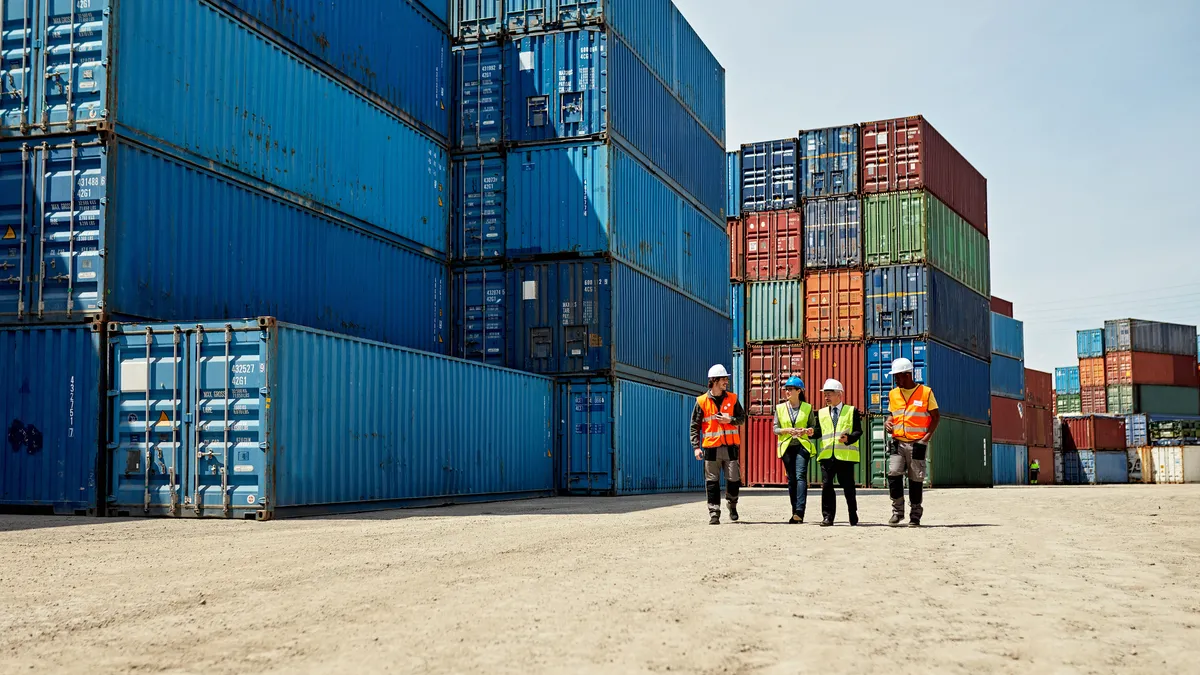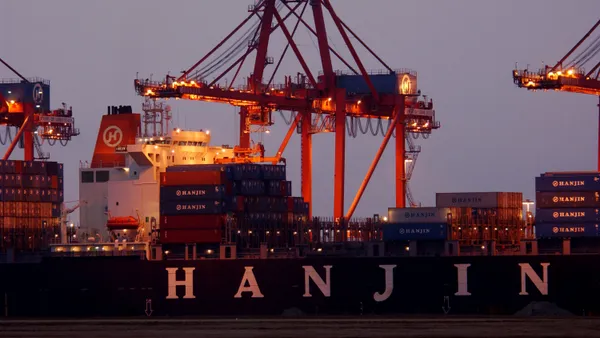Dive Brief:
- Freight forwarders are increasingly accepting requests to use shipper-owned containers as equipment shortages persist, according to a survey conducted by Container xChange.
- Container xChange reached out to several freight forwarders — such as FedEx, BDP International and Yusen Logistics — with a request to transport industrial machinery parts from Shanghai to Hamburg. The percentage of freight forwarders surveyed that accepted an SOC request from Container xChange rose to 18% in 2021, nearly twice as many as in 2020 and three times as many as in 2019, the survey said.
- "The rise in awareness for SOCs shows that industry participants are responding to the supply-chain pressures by diversifying their sourcing strategy," Christian Roeloffs, founder and CEO of Container xChange, said in a statement.
Dive Insight:
Using a shipper-owned container comes with more challenges compared to a carrier-owned container for freight forwarders. But, faced with constraints to secure equipment, agents are now warming up to the idea.
For freight forwarders, accepting a shipper-owned container is a dilemma
| Pros | Cons | |
|---|---|---|
| Fees | Helps avoid unexpected detention and demurrage fees. | Can cause missed opportunities on freight rate discounts from carriers. |
| Logistics | Allows shippers to control trucking and shipping with the carrier of their choice. | Can be time-consuming when searching for containers from reliable sources. |
| Convenience | Serves as an option when a carrier has limited container availability in certain ports. | Creates more obligations from the shipper to move or utilize the container after it is used. |
SOURCE: Container xChange's 2019 SOC blog and Mystery Shopping Survey of 2021
An uncertain ocean shipping market last year left companies taking unusual actions. As port congestion limited the number of available containers and increased detention or demurrage fees, shippers sought to diversify their logistics tactics. Ikea, for example, used its own containers to gain greater control over its supply chain.
"COVID caused a strong equipment imbalance, and therefore the need for empty equipment has increased. SOCs are a solution for this but the cost and management effort often outweigh the advantage," Florian Braun, head of ocean freight for EMEA at Flexport, said in a statement.
Freight forwarders' view of shipper-owned containers as an option could continue to change, especially if and when ports return to pre-pandemic volume levels. "The downside is that you need a dedicated team/person to manage these [SOC] shipments," said Braun.















